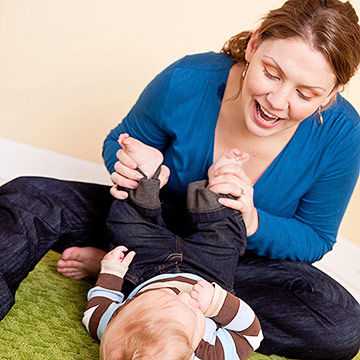If someone spoke to you in a high pitched, animated manner, you might be a little confused. This style of talking is known as infant-directed speech (IDS) and is characterized by high pitch, slower tempo, tonal variation, and simplified language. But why do parents naturally use this speech with their children? As science has shown, IDS is instrumental in directing and keeping a baby’s attention, facilitating infant learning, and much more.
Previous research has shown that when babies react positively to their mother’s IDS, mothers are more likely to use this infant-friendly type of speech. Smith & Trainor (2008) conducted a study in which mothers were instructed to “make their babies happy.” The mothers and their babies were divided into two conditions. In the first condition, babies were prompted by an experimenter to smile and laugh, appearing happy, when the mother spoke with a lower pitch than usual. Conversely, babies in the second condition had an experimenter elicit positive reactions when their mother spoke in a higher pitch than normal.
Watching their child through a video, the mothers believed that their baby was reacting to their voice. However, what the moms didn’t know is that their infants were actually responding to the hidden experimenter. The experimenter’s job was to engage or present a neutral expression to the infant, depending on the mother-child pair’s assigned condition. This was to control how the infant was appearing to react to the mother. By manipulating how the mother thought her infant was responding to her speech, the experimenters were able to measure how her IDS changed in response to her child. Overall, the researchers discovered that when a child had a positive reaction to their mother’s voice, the mom continued to use the heightened pitch in her infant directed speech.
Undoubtedly, parents contribute to and affect their child’s learning and development. However, there is now evidence that babies are helping their parents to be more effective. By providing feedback through positive reactions, babies are letting parents know what they want to hear. So, the next time you engage with your baby, know that you’re getting just as much out of the interaction as your child is!



